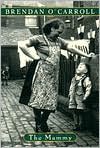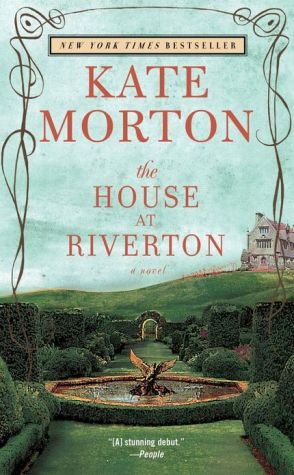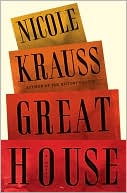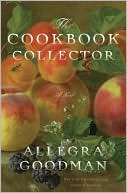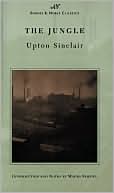The Mammy
"Mammy" is what Irish children call their mothers and The Mammy is Agnes Browne—a widow struggling to raise seven children in a North Dublin neighborhood in the 1960s. Popular Irish comedian Brendan O'Carroll chronicles the comic misadventures of this large and lively family with raw humor and great affection. Forced to be mother, father, and referee to her battling clan, the ever-resourceful Agnes Browne occasionally finds a spare moment to trade gossip and quips with her best pal Marion...
Search in google:
Seven kids. One dead husband called "Redser." And not a chance that she'll be defeated. Not by Sister Magdalen, her daughter's tyrannical teacher. Not by the amorous overtures of the French proprietor of the local pizza parlour. Not by the medical crisis that threatens her best pal, Marion. Every morning at five, Agnes Browne leaves her tenement flat and sets up her produce stall on Moore Street, in the teeming heart of The Jarro - home to Dublin's dealers, dockers, draymen, and those on the dole. But to the fatherless Browne brood, Agnes is more than a beloved neighborhood character. She's just about everything there is...The New York Times Book Review \\ - Michael Porter...O'Carroll cooks up a story as unpretentious and satisfying as a home-cooked meal....His narrative feels disjointed at times, but the novel is saved by the strength of its individual episodes, particularly a most improbable but delicious dessert of an ending.
\ \ \ \ Chapter One\ \ \ 29 MARCH 1967 — DUBLIN\ \ \ LIKE ALL GOVERNMENT BUILDINGS, the interior of the public waiting room in the Department of Social Welfare was drab and uninviting. The walls were painted in three colours: `Government green,' as it was known to all in Dublin, on the bottom half, and either cream or very old white on the top half, with a one-inch strip of red dividing the two. The only seating consisted of two pew-like wooden benches — these were covered in gouged-out initials and dates. Lighting was provided by one large opaque bowl-like fixture hanging from a six-foot cable in the centre of the high ceiling. The outside of the bowl was dusty, the inside yellowed and speckled with fly shit. In the bottom of the bowl lay a collection of dead flies.\ `Serves them right,' said the woman staring at the globe.\ `What? Serves who right, Agnes?' her companion asked tenderly.\ `Them, Marion.' She pointed to the globe. `Them flies ... serves them right.'\ Marion looked up at the globe. For a couple of minutes they both stared at the light.\ `Jaysus, Agnes, I'm not with yeh ... serves them right for what?' Marion was puzzled and not a little concerned about Agnes's state of mind. Grief is a peculiar thing. Agnes pointed at the globe again.\ `They flew into that bowl, right? Then they couldn't get out, so they shit themselves and died. Serves them right, doesn't it?'\ Marion stared at the globe again, her mouth slightly open, her mind trying to work outwhat Agnes was on about. Agnes was now back scanning her surroundings; the wall-clock tick-tocked. Again, she looked at the only other person in the room. He was a one-legged man, haft-standing, haft-propped up at the hatch. She heard him making his claim for unemployment benefit. He was a `gotchee', a night watchman on a building site. He had just been sacked because some kids had got on to the site and broken the windows. The girl was `phoning his former employer to ensure he had been sacked and had not left of his own accord. Agnes was trying to imagine what it must be like to be sacked. Being self-employed, she had never been sacked.\ `Fuck them.' Marion broke the silence.\ `Who?' asked Agnes.\ `Them flies,' Marion pointed. `Fuck them, you're right, shittin' on everything else all their lives. Serves them right! Oh Agnes, is this fella goin' t'be much longer? I'm bustin` for a slash.' Marion had a pained expression on her face. Agnes looked over the man's shoulder. The girl was just putting the phone down.\ `She's nearly finished. Look, there's a jacks outside in the hall, you go on, I'll be all right. Go on!'\ Marion bolted from the waiting room. At the same time the girl returned to the hatch.\ `Right then, Mr O'Reilly. Here's your signing-on card. You will sign on at hatch 44, upstairs in Gardiner Street at 9.30am on Friday, okay?'\ The man looked at the card and then back at the girl. `Friday? But this is Monday. Yer man wouldn't pay me and I've no money.'\ The girl became very business-like. `That's between you and him, Mr O'Reilly. You'll have to sort that out yourself. Friday, 9.30, hatch 44.'\ The man still did not leave. `What will I do between now and Friday?'\ The girl had had enough. `I don't care what you do. You can't stand there until Friday, that's for sure. Now go on, off with you.'\ `He's a bollix,' the man told the girl.\ She reddened. `That's enough of that, Mr O'Reilly.'\ But he hadn't finished. `If I had me other leg I'd fuckin' give it to him, I would!'\ The girl bowed her head in a resigned fashion. `If you had your other leg, Mr O'Reilly,' she snapped, `you would have caught the children and you wouldn't be here now, would you?' She closed the doors of the hatch in the hope that Mr O'Reilly would vanish. He gathered himself together, slid the card into his inside pocket, put his glasses into a clip-lid box and propped his crutch under his arm. As he made for the exit he said aloud, `And you're a bollix too!' He opened the door of the waiting room just as Marion got to it.\ `That one's only a bollix,' he said to her and, surprisingly quickly, headed off down the hallway.\ Marion looked after him for a moment and then turned to Agnes. `What was that about?' she said as she took her seat beside her friend.\ Agnes shrugged. `Don't know. Did yeh go?'\ `Yeh.'\ `All right then?'\ `I'm grand. Jaysus, the paper they use here cuts the arse off'a yeh.'\ `That auld greaseproof stuff?.'\ `Yeh, it's like wipin' your arse with a crisp bag.'\ `Yeh.'\ `Well, what are you waitin' for?'\ `I was waitin' on you to come back. Come on.'\ The two women went to the hatch. Agnes pressed the bell. They heard no sound.\ `Press it again,' said Marion.\ Agnes did. Still no sound. Marion knocked on the hatch doors. Behind, they could hear the sound of movement.\ `Someone's comin',' whispered Agnes. Then, as if she was preparing to sing she cleared her throat with a cough. The hatch opened. It was the same girl. She didn't look up. Instead she opened a notebook and, still with the head down, asked, `Name and social welfare number?'\ `I don't have one,' Agnes replied.\ `You don't have a name?' The girl now looked up.\ `Of course she has a name,' Marion now joined in. `It's Agnes, after the Blessed Agnes, Agnes Browne.'\ `I haven't got a social welfare number.'\ `Everybody has a social welfare number, Missus!'\ `Well, I haven't!'\ `Your husband — is he working?'\ `No, not any more.'\ `So, he's signed on, then?'\ `No.'\ `Why not?'\ `He's dead.'\ The girl was now silent. She stared at Agnes, then at Marion.\ `Dead?' Both women nodded. The girl was still not giving up on the numbers game. `Do you have your widow's pension book with you?'\ `I haven't got one, that's why I'm here.'\ `Ah, so this is a new claim?' The girl felt better now that she had a grasp of what was happening. She lifted a form from below the counter. Both women shot glances at each other, a look of fear crossing their faces. They regarded the answering of questions on forms as an exam of some kind. Agnes wasn't prepared for this. The girl began the interrogation.\ `Now, your full name?'\ `Agnes Loretta Browne.'\ `Is that Browne with an "E"?'\ `Yeh, and Agnes with an "E" and Loretta with an "E".'\ The girl stared at Agnes, not sure that this woman wasn't taking the piss out of her.\ `Your maiden name?'\ `Eh, Reddin.'\ `Lovely. Now, your husband's name?'\ `Nicholas Browne, and before you ask, I don't know his maiden name.'\ `Nicholas Browne will be fine. Occupation?'\ Agnes looked at Marion and back at the girl, then said softly, `Dead.'\ `No, when he was alive, what did he do when he was alive?'\ `He was a kitchen porter.'\ `And where did he work?'\ Again, Agnes looked into Marion's blank face. `In the kitchen?' she offered, hoping it was the right answer.\ `Of course in the kitchen, but which kitchen? Was it a hotel?'\ `It's still a hotel, isn't it, Marion?' Marion nodded.\ `Which hotel?!!' The girl was exasperated now and the question came out through her teeth.\ `The Gresham Hotel in O'Connell Street, love,' Agnes answered confidently. That was an easy one. The girl scribbled in the answer and moved down the form.\ `Now, what was the cause of death?'\ `A hunter,' Agnes said.\ `Was he shot?' the girl asked incredulously. `Was your husband shot?'\ `By who?' Agnes asked this question as if the girl had found out something about her husband's death that she didn't know herself.\ `The hunter, was your husband shot by a hunter?'\ Agnes was puzzled now. She thought it out for a moment and then a look of realisation spread over her face.\ `No, love! A Hillman Hunter, he was knocked down by a Hillman Hunter — a car!'\ The girl stared at the two women again, then dismissed the thought that this was Candid Camera. These are just two gobshites, she told herself. `A motor accident ... I see.' She scribbled again. The two women could see that she was now writing on the bottom line. They were pleased. But then she turned the form over to a new list of questions. The disappointment of the women was audible. The young girl felt it and in an effort to ease the tension of the two said, `That must have been a shock.'\ Agnes thought for a moment. `Yeh, it must have been, sure he couldn't have been expecting it!'\ The girl glanced around the room, wondering could it be possible that there was a hidden camera after all. Again she dismissed it.\ `Right, then, let's move on. Now, how many children do you have?'\ `Seven.'\ `Seven? A good Catholic family!'\ `Ah, they're all right. But yeh have to bate the older wans to Mass.'\ `I'm sure. Eh, I'll need their names and ages.'\ `Right! Let me see, Mark is the eldest, he's fourteen; then Francis, he's thirteen; then the twins, there's two of them, Simon and Dermot, twelve, both of them; then Rory and he's eleven; after him there's Cathy, she was a forceps, very difficult!'\ `It was, I remember it well. You're a martyr, Agnes,' Marion commented.\ `Ah sure, what can you do, Marion. She's ten; and last of all there's Trevor, the baby, he's three.'\ The form had been designed to accommodate ten children so there was plenty of space left. The girl ran a line through the last three spaces and moved on to the next section. In the back of her mind she wondered what it was between 1957 and 1964 that gave Mrs Browne the `break'!\ `Now, when did your husband die?'\ `At half-four.'\ `Yes, but what day?'\ `This mornin'.'\ `This morning! But sure, he couldn't even have a death certificate yet!'\ `Ah no, not at all — sure he didn't even go past primary!'\ `No, a death certificate. I need a death certificate. A certificate from the doctor stating that your husband is in fact dead. He could be alive, for all I know.'\ `No, love, he's definitely dead. Definitely. Isn't he, Marion?'\ Marion agreed. `Absolutely. I know him years, and I've never seen him look so bad. Dead, definitely dead!'\ `Look Mrs ... eh, Browne, I cannot process this until you get a death certificate from the hospital or doctor that pronounced your husband dead.'\ Mrs Browne's eyes half-closed as she thought about this. `So, if I can't get this until tomorrow, I'll lose a day's money?'\ `You won't lose anything, Mrs Browne. It will be back-dated. You will get every penny that's due to you. I promise.'\ Marion was relieved for her friend. She poked her in the side. `Back-dated, that's grand, Agnes, so you needn't have rushed down at all.'\ Agnes wasn't convinced. `Are you sure?'\ The girl smiled. `I'm absolutely sure. Now look, take this form with you — it's all filled in already — and when you get the death certificate, hand them both in together. Oh, and bring your marriage certificate as well, you'll get that from the church that you married in. In the meantime, Mrs Browne, if you need some money to get by on just call down to the Dublin Health Authority Office in Jervis Street and see the relieving officer there.'\ Agnes took all this in. `The relieving officer, Jervis Street?'\ The girl nodded. `Jervis Street.'\ Agnes folded the form. She was about to leave but she turned back to the girl. `Don't mind that one-legged "gotchee". You're very good, love, and you're not a bollix!'\ With that, the two women stepped back out into the March sunshine to prepare for a funeral.
\ Entertainment WeeklyIt's refreshing to enter O'Carroll's fun-loving, working-class Dublin world...\ \ \ \ \ Michael Porter...O'Carroll cooks up a story as unpretentious and satisfying as a home-cooked meal....His narrative feels disjointed at times, but the novel is saved by the strength of its individual episodes, particularly a most improbable but delicious dessert of an ending.\ — The New York Times Book Review \\\ \ \ Irish America Magazine[The Mammy's] life seems to have more downs than ups most of the time, but she remains firm in her resolution to keep looking on the bright side.\ \ \ \ \ Publishers Weekly\ - Publisher's Weekly\ In his first novel, Irish playwright and stand-up comedian O'Carroll mines the same material (Irish humor and gritty upbringing) as the novels that spawned the movies he's acted in: Roddy Doyle's The Van and the upcoming film version of Frank McCourt's Angela's Ashes. A tribute to O'Carroll's mother, the narrative is set in the working-class Dublin of the 1960s, where Agnes Browne (the Mammy) works a fruit and vegetable stall with her best friend, Marion Monks, but dreams of dancing with suave singer Cliff Richard. And Agnes needs all the romance she can get as a sexually na ve, newly widowed beauty raising seven kids on her own. Agnes helps her eldest son, Mark, negotiate puberty and search for a job, while defending her other children from sadistic nuns, gossipy neighbors, depression and each other. She also finds time to date the Frenchman who owns the local pizza parlor. When Marion is diagnosed with cancer, she and Agnes get as daring as their stations in life allow: Marion takes driving lessons and Agnes tries to buy a ticket to a Cliff Richard concert. By novel's end, each has made peace with her dreams. Like stand-up comics, the characters here are more clever and glib than ordinary people, but these Dubliners are also irresistibly charming as they face their daily scrapes and heartbreaks. Tales of working-class Irish life now fill bookshelves, but there's space aplenty for O'Carroll's sturdy contribution. (May) FYI: The Mammy launches a trilogy that will include future Plume titles The Chisellers and The Granny. Meanwhile, O'Carroll will appear in a film version of The Mammy starring Anjelica Huston.\ \ \ \ \ Library JournalIrish comedian O'Carroll declares that he was lucky to have been born and raised in Finglas, Dublin, a place where strong women are in abundance. The Mammy tells the story of Agnes Browne, a widow and mother of seven who is undoubtably modeled on the women of Finglas. The story begins with Agnes and her best friend, Marion, in the public waiting room of the Department of Social Welfare on the day of Agnes's husband's untimely death. Wit, humor, and resourcefulness guide Agnes in her role as mother, father, and best friend. The Mammy contains a colorful cast of characters, and O'Carroll's depiction of 1960s working-class Irish life is animated and entertaining. Recommended for public libraries.--Dianna Moeller, WLN, Lacey, WA Copyright 1999 Cahners Business Information.\ \ \ \ \ Kirkus ReviewsComedian O'Carroll's debut novel, the first installment in an intended trilogy, goes over turf familiar to Irish storytellers, offering an amusing if saccharine view of family life in working-class Dublin, where a young widow with seven children makes ends meet and realizes her most cherished dream in spite of everything. Agnes Browne is initially glimpsed in the Pension Office, applying for her widow's relief on the afternoon of the same day her husband was run over by a car. Although his funeral goes smoothly, the burial turns out to be a fiasco, as three processions become entangled and Agnes and the other mourners see the wrong casket interred. Then life resumes much as before, with Agnes and her dear friend Marion going off at dawn every day to run their fruit-and-vegetable stands in a street market. Tensions at home are lessened, however, without the threats from her drunken, abusive husband. The kids still have their share of woes: the eldest, Mark, is worried about his new pubic hair and new responsibilities as head of the household; the only girl, Cathy, runs afoul of Sister Magdalen when she leaves school without permission—to get fresh underwear after learning of a surprise checkup by the school doctor. Agnes experiences another, even greater loss when Marion discovers a lump in her breast and dies within a few months. Yet the plucky widow also manages to catch the eye of a Frenchman opening a pizza parlor in the neighborhood, and she goes on her first date since learning she was pregnant with Mark. Finally, thanks to a chance encounter and some mischief involving two of her boys, Agnes is able to achieve an impossible dream, just in time for Christmas. Would thatthe lives of the working poor were all so blessed. When not engaged in creating Capraesque moments, though, this is a gritty, colorful tale of Irish reality.\ \
